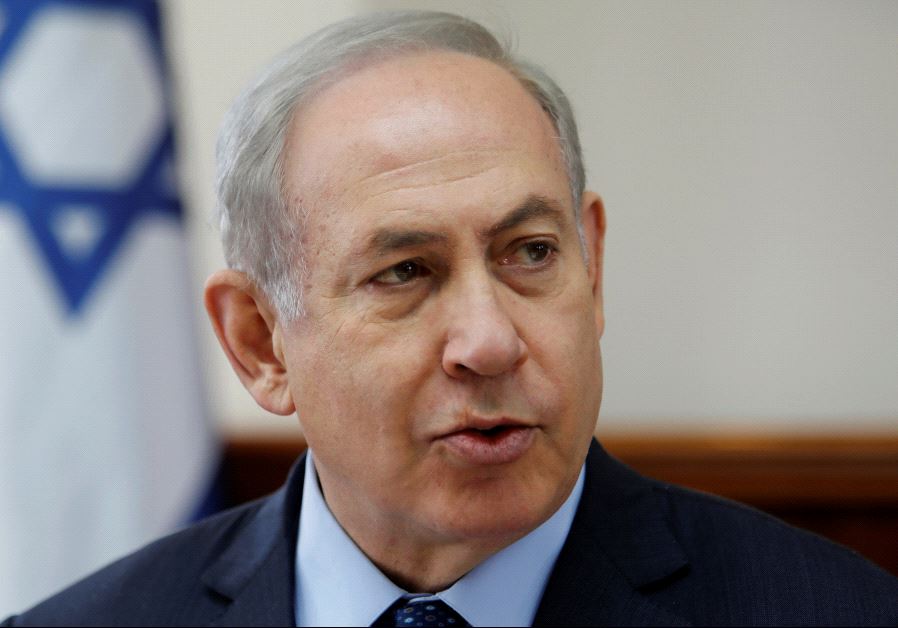Washington Watch: Panic attack
This week we witnessed the ultimate example of how the Palestinians never miss an opportunity to miss an opportunity.
 Israeli Prime Minister Benjamin Netanyahu chairs the weekly cabinet meeting in Jerusalem May 3, 2017.
Israeli Prime Minister Benjamin Netanyahu chairs the weekly cabinet meeting in Jerusalem May 3, 2017.